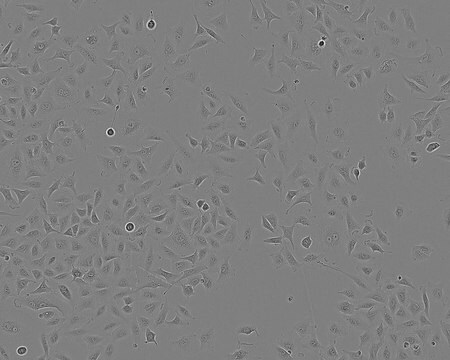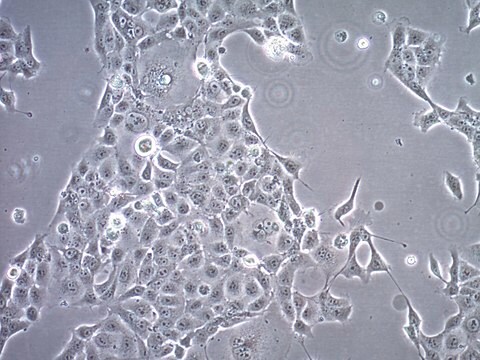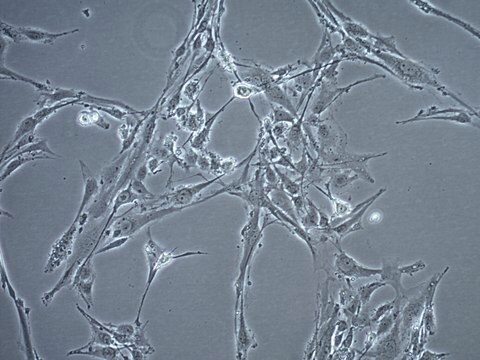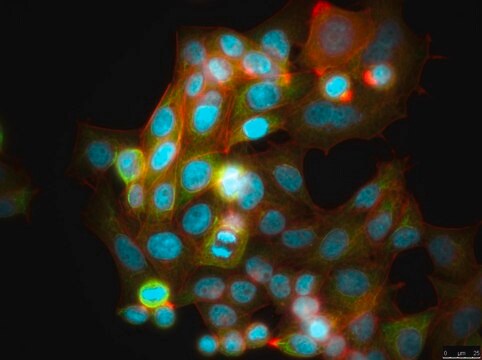NCI-H322 Cell Line human
95111734
Sinónimos:
H322 Cells, NCI-322 Cells, NCI-H322T Cells
Iniciar sesiónpara Ver la Fijación de precios por contrato y de la organización
About This Item
UNSPSC Code:
41106514
Productos recomendados
biological source
human lung (cervical node metastasis)
description
Human Caucasian bronchioalveolar carcinoma
growth mode
Adherent
karyotype
Not specified
morphology
Not specified
products
Not specified
receptors
Not specified
technique(s)
cell culture | mammalian: suitable
relevant disease(s)
metastasis
shipped in
dry ice
storage temp.
−196°C
Categorías relacionadas
Cell Line Origin
Human Caucasian bronchioalveolar carcinoma
Cell Line Description
NCI-H322 was derived in 1981 from a primary bronchioalveolar carcinoma of the lung from a 52 year old male taken prior to treatment. Ultrastructural studies of this non-small cell carcinoma cell line demonstrated the presence of cytoplasmic structures characteristic of Clara cells. NCI-H322 do not express UDP-glucuronosyltransferase, but are reported to express glutathione-S-transferase and phenol sulfotransferase. Expression of protein and RNA of SP-A, the major surfactant-associated protein was detected. The cells produce tumours in athymic mice.
Application
NCI-H322 has been used to study the preclinical antitumor efficacy of BAY 1129980, which is an anti-C4.4A (Ly6/PLAUR domain-containing protein 3 precursor-LYPD3) antibody–drug conjugate for the treatment of non–small cell lung cancer.
Test system for evaluating cytotoxicity and genotoxicity of chemicals to human lung
Culture Medium
RPMI 1640 + 2mM Glutamine + 5-10% Foetal Bovine Serum (FBS).
Subculture Routine
Split sub-confluent cultures (70-80%) 1:3 to 1:6 i.e. seeding at 1-3x10,000 cells/cm2 using 0.25% trypsin or trypsin/EDTA; 5% CO2; 37°C.
Other Notes
Additional freight & handling charges may be applicable for Asia-Pacific shipments. Please check with your local Customer Service representative for more information.
Certificados de análisis (COA)
Busque Certificados de análisis (COA) introduciendo el número de lote del producto. Los números de lote se encuentran en la etiqueta del producto después de las palabras «Lot» o «Batch»
¿Ya tiene este producto?
Encuentre la documentación para los productos que ha comprado recientemente en la Biblioteca de documentos.
Nuestro equipo de científicos tiene experiencia en todas las áreas de investigación: Ciencias de la vida, Ciencia de los materiales, Síntesis química, Cromatografía, Analítica y muchas otras.
Póngase en contacto con el Servicio técnico



